Plenary Speaker
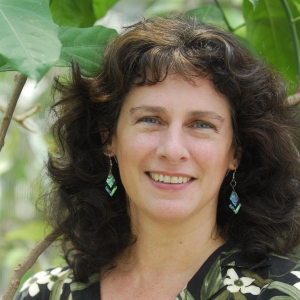
Camille Parmesan’s research focuses on the current impacts of climate change on wildlife, from field-based work on butterflies to synthetic analyses of global impacts on a broad range of species across terrestrial and marine biomes. She works actively with governmental agencies and NGOs to help develop conservation assessment and planning tools aimed at preserving biodiversity in the face of climate change.
Dr Parmesan has received numerous scientific awards, including being ranked the second most highly cited author in the field of Climate Change from 1999-2009 by Thomson Reuters Web of Science, being named the “2013 Distinguished Scientist” by the Texas Academy of Sciences, and elected a Fellow of the Ecological Society of America. She was awarded the Conservation Achievement Award in Science by the National Wildlife Federation, named “Outstanding Woman Working on Climate Change,” by IUCN, and named as a “Who’s Who of Women and the Environment” by the United Nations Environment Program (UNEP). She has worked with the Intergovernmental Panel on Climate Change for more than 15 years, and is a named Contributor to IPCC receiving the Nobel Peace Prize in 2007.
Dr Parmesan is an Adjunct Professor in Geological Sciences at the University of Texas at Austin (USA) and a Professor at the Marine Institute, Plymouth University (UK), where she holds the National Aquarium Chair in the Public Understanding of Oceans and Human Health.
https://www.plymouth.ac.uk/staff/camille-parmesan
Camille’s attendance at the conference has been supported by the Ian Potter Foundation.
www.imas.utas.edu.au/people/profiles/current-staff/p/Gretta-Pecl
Lightning Plenary Speaker
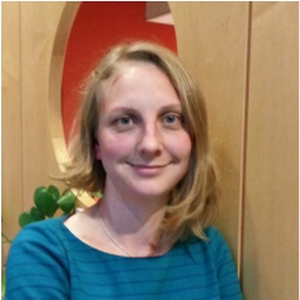
Dr Jennifer Sunday’s research focuses on how species traits, thermal physiology, and biotic interactions shape broad-scale biogeographic patterns. In doing so, she aims to provide a more predictive understanding of ecological responses to climate change. Her interests include understanding how marine and terrestrial species’ distributions are affected by warming, how biotic interactions are mediated by temperature through physiology, and how contemporary evolution will affect climate change responses.
Jennifer has received the Early Career Researcher Award from Canadian Society for Ecology and Evolution, and the Raymond B. Huey Award in Ecology and Evolution (USA). She is currently a post-doctoral fellow at the Biodiversity Center at the University of British Columbia, Canada.
Twitter: @JennSunday
Lightning Plenary Speaker
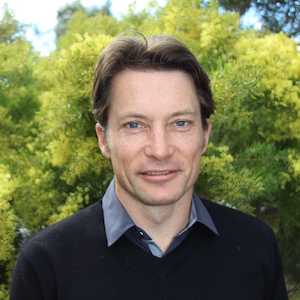
Associate Professor Michael Kearney is an ecologist who is interested in how the physical environment constrains the distribution, abundance and behaviour of organisms.
Michael and his colleagues have developed new laboratory, field and modelling approaches to study the biophysical constraints that climate (from the outside) and metabolism (from the inside) impose on where animals can survive, forage, grow, develop, and reproduce. The approaches can be used to understand the causes of distribution limits, to understand phenology and life history evolution, to predict variation in habitat suitability through space and time under climate change, and to forecast ideal times to survey and monitor species. He has applied these models to a wide range of species for pure and applied problems in ecology and conservation biology.
Michael is a Thomson Reuters Highly Cited Researcher and serves on the editorial boards of The American Naturalist and Climate Change Responses. He has a BSc (Hons) from Monash University and a PhD from the University of Sydney and is presently an Associate Professor and Reader in the School of BioSciences at The University of Melbourne where he leads the Climate and Metabolic Ecology Lab.
https://camelunimelb.wordpress.com/
Twitter: @ecophys
Keynote Speaker
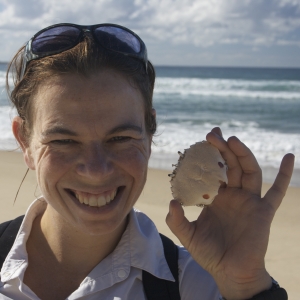
Associate Professor Jan Strugnell completed her BSc (Hons) at James Cook University before obtaining her DPhil at Oxford University, funded by a Rhodes Scholarship. She used molecular and fossil evidence to investigate phylogenetic relationships and divergence times within cephalopods (octopus, squids and cuttlefish).
Jan then worked as an post-doctoral research fellow at Queen’s University Belfast, the British Antarctic Survey and Cambridge University where she investigated evolutionary relationships within and between Antarctic and deep-sea octopods. She reported the first dated molecular evidence that deep-sea fauna from other ocean basins originated from Southern Ocean taxa.
Jan is currently based in the Department of Ecology, Environment and Evolution at La Trobe University. Her current projects include ARC-funded research where she employs a range of next generation sequencing methods including transcriptomics, double digest RAD-seq and targeted capture. Her lab group is investigating population differentiation, self-recruitment and adaptation in a range of commercially important lobster and species. They also work on species delineation and range shifting in octopus and are investigating the genetic basis for resilience and susceptibility to temperature stress in abalone. Jan also investigates population and species level molecular evolution in Antarctic and deep-sea taxa in the context of past climatic and geological change.
Strugnell Lab at La Trobe University
Twitter: @JanStrugnell
Keynote Speaker
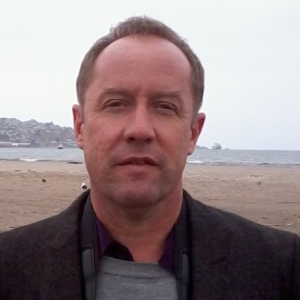
Hugh Possingham is an Australian Research Council Laureate Fellow, Fellow of the Australian Academy of Sciences and director of two national research centres. Since the 1990s he has pioneered research into how decision science tools from mathematics and economics can bring rigour and efficiency to conservation decisions.
Prof. Possingham’s group software designs most of the world’s systems of protected areas. Hugh has coauthored over 500 refereed scientific publications and been a primary supervisor for 69 PhD students and 58 honours students.
Twitter: @hugepossum
Keynote Speaker
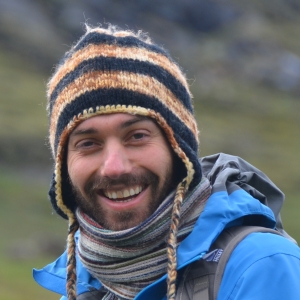
Jonathan Lenoir is an Associate Professor at Jules Verne University of Picardie (UPJV) where he teaches Ecology and Biostatistics. He is broadly interested in the ecological dynamics associated with spatial and temporal global changes, with particular emphasis on biotic responses and disequilibrium dynamics under contemporary climate change.
Jonathan has a Forest Engineering degree and a PhD degree in Forest Sciences from the Paris Institute of Technology for Life, Food and Environmental Sciences (AgroParisTech). During his PhD, he investigated changes in species’ ranges within mountain forests in France, focusing on forest plants and using long-term vegetation databases. For his results, he has received two scientific awards, including the Award of the Best Thesis from the Lorraine Region. Before obtaining his Associate Professor position, he did a postdoctoral fellowship in Plant Macroecology at Aarhus University (AU) within the Ecoinformatics and Biodiversity Group.
Jonathan’s current research focuses on the detection of invasive plant species and the assessment of their impacts on ecosystem properties through remote sensing (DIARS), a project funded by the ERA-Net BiodivERsA. He is also working on the niche conservatism hypothesis, testing whether or not two distant or even disjoint populations of the same species retain the same realized climatic niche, an important assumption when running species distribution models (SDMs) to ensure successful conservation planning of biodiversity under contemporary and future climate change.
https://jonathanlenoir.wordpress.com/
Twitter: @EkoLogIt
Jonathan’s attendance at the conference has been supported by the Ian Potter Foundation.
Keynote Speaker
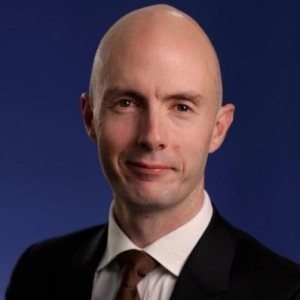
Tim Stephens is Professor of International Law and Australian Research Council Future Fellow at the University of Sydney. He is President of the Australian and New Zealand Society of International Law and Deputy Director of the Marine Studies Institute (formerly USIMS) at the University of Sydney.
Tim teaches and researches in public international law, with his published work focussing on the international law of the sea, international environmental law and international dispute settlement. Major career works include The International Law of the Sea (Hart, 2010) with Donald R Rothwell and International Courts and Environmental Protection (Cambridge University Press, 2009). Tim has been a consultant for several non-governmental organisations, including a long association of work for the International Fund for Animal Welfare in relation to cetacean conservation. In 2014, Tim was appointed, on the nomination of the Australian Government, to the List of Experts for the South Pacific Regional Fisheries Management Organisation. Tim has a PhD in law from the University of Sydney, an M.Phil in geography from the University of Cambridge, and a BA and LLB from the University of Sydney.
http://sydney.edu.au/law/about/people/profiles/tim.stephens.php
Twitter: @TimStephens10
Keynote Speaker

Professor Miguel B. Araújo is a Research Professor of the Spanish Research Council (CSIC) at the National Museum of Natural Sciences in Madrid and a Visiting Professor at the University of Copenhagen and the University of Évora. Miguel has a wide range of interests in biogeography, conservation planning, global change biology, and macroecology.
More recently he has been using a wide range of modelling approaches to investigate impacts of climate change on species’ distributions. He has authored over 180 publications in journals and books and was identified as ‘highly cited‘ scientist by Thomson Reuters (2014). Prof Araújo has been recognised with a Royal Society Wolfson Research Merit Award (2014), the International Biogeography Society MacArthur & Wilson Award (2013), and the Global Information Biodiversity Facility Ebbe Nielsen Prize (2013).
The impact of his research on broad scale biodiversity patterns and climate change appeals broadly, with several papers being regularly featured by the International press, as well as National Geographic Magazine, Nature’ Reports on Climate Change, the New Scientist, Science’ New Focus, the Scientific American, and the Scientist. Miguel is Editor-in-Chief of Ecography, and is also a member of the editorial boards of Climate Change Responses, and Frontiers of Biogeography.
http://www.maraujolab.com/people/miguel-araujo/
Twitter: @Araujo_lab
Keynote Speaker
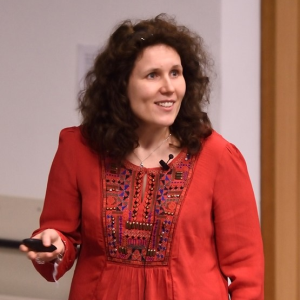
Dr Nathalie Pettorelli is a research fellow at the Institute of Zoology (IOZ) and an honorary lecturer at University College London (UCL), with a main research focus on biodiversity monitoring and climate change ecology. Her expertise includes methods to assess, predict and mitigate the impacts of changes in climatic conditions on species and ecosystems.
Together with her PhD students and colleagues, Nathalie was the first to present a coherent framework for quantitatively assessing mammals’ vulnerability to extreme natural events, while pioneering efforts to combine population dynamics modelling and species distribution models to better inform translocations. She was also among the first to highlight the potential for Earth observations to inform population dynamics studies and support species reintroduction programmes. So far, she has published a single authored book and an edited book, over 100 peer-reviewed publications as well as various book chapters, blogs and editorials.
Nathalie is on the editorial boards of Journal of Applied Ecology and Animal Conservation, two high impact, UK-based journals. She is also the Editor in Chief of Remote Sensing in Ecology and Conservation, a newly launched journal that aims to promote collaborative work at the interface between remote sensing, ecology and conservation.
http://www.zsl.org/users/nathalie-pettorelli
Twitter: @Pettorelli
Nathalie’s attendance at the conference has been supported by the Ian Potter Foundation.
Keynote Speaker
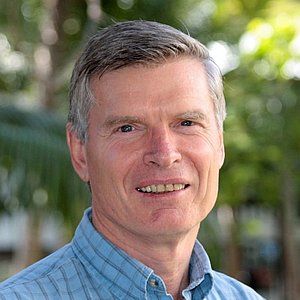
Professor Johann Bell is a Visiting Professorial Fellow at the Australian National Centre for Ocean Resources and Security, University of Wollongong. Johann has worked extensively on fisheries and aquaculture in developing countries in Asia-Pacific with WorldFish and the Secretariat of the Pacific Community. In recent years, Johann has focused on the strategic planning needed to maintain the important role that fish plays in the food security of Pacific Island countries and territories in the face of rapid population growth and climate change.
While Johann was employed at the Secretariat of the Pacific Community, he led a major assessment of the vulnerability of fisheries and aquaculture in the tropical Pacific to climate change and was a contributing author to Chapter 30 (The Ocean) of the Intergovernmental Panel on Climate Change Fifth Assessment Report. More recently, Johann has advised the Consultative Group on International Agricultural Research’s cooperative research program on ‘Climate Change, Agriculture and Food Security’ about building climate-resilient food systems for Pacific Islands.
Johann currently works as a consultant for Conservation International’s ‘Global Tuna Initiative’ and has contributed to the development of policies to diversify the use of tuna to improve food security and public health in Pacific Island countries and territories. Johann is also a member of the International Advisory Committee for the United Nation University’s Institute of Water, Environment and Health.
Keynote Speaker
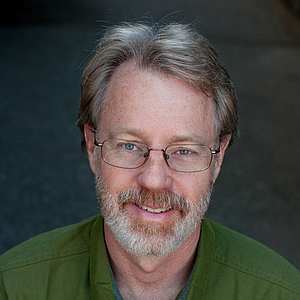
Dr Mark Reynolds is Lead Scientist for Migratory Bird Conservation for The Nature Conservancy’s California Program where he develops science-based approaches to conservation planning, design of conservation strategies, impact measures and monitoring.
Mark has worked on conservation plans and developing conservation strategies for grasslands, oak woodlands, coastal forest and Mediterranean ecosystems that have resulted in protection and restoration of priority conservation areas in California and beyond. Mark’s recent work has focused on conservation of migratory species including combining predictive models of migration and habitat variability and market-based incentive programs for working with farmers to create temporary habitat for migratory waterbirds in California’s Central Valley.
Mark’s research interests include conservation biology, ecology and behavior of birds. He is Adjunct Professor of Biology at San Francisco State University and has served on the board of directors of PRBO Conservation Science, San Francisco State University’s Romberg Tiburon Center of the Environment, and the Cooper Ornithological Society.
Keynote Speaker
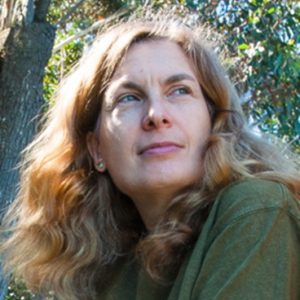
Professor Sharon Robinson researches how plants respond to climate change with an interdisciplinary approach that encompasses a range of scales from chemical signatures at the cellular level through to ecosystem level spatial sciences. Sharon uses isotopic signatures to date Antarctic mosses and track changes in their growth water availability and ultraviolet (UV)-absorbing compounds to track Southern Hemisphere ozone depletion and elevated UV-B radiation. Her group is also developing a range of new technologies to monitor plant health and productivity remotely, with colleagues in the Terraluma group at the University of Tasmania. Her research is currently funded by the Australian Research Council and by Australian Antarctic Science Grants.
After completing her PhD at University College London in 1990, Sharon held post doctoral positions at Duke University (USA) and the Australian National University before her appointment as a Lecturer in the School of Biological Sciences at the University of Wollongong in 1996. She is currently a member of the United Nations Environment Programme Environmental Effects Assessment Panel, the Australian Research Council College of Experts and an Editor for the journal Global Change Biology.
Sharon first visited East Antarctica in 1996 and has been on ten Australian expeditions to Casey, Davis and Macquarie Island as well as two visits to King George Island with the Chilean Antarctic program. She is a custodian for the only Antarctic State of the Environment Indicator concerned with Antarctic vegetation and her research group has provided the first evidence that climate change is affecting East Antarctic terrestrial communities.
Keynote Speaker
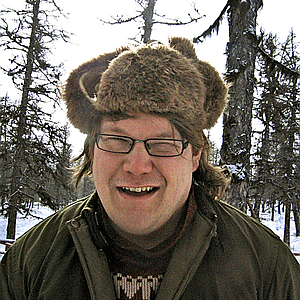
Dr Tero Mustonen, a passionate defender of traditional worldview and cosmology of his people, is a Finn and the head of village of Selkie in North Karelia, Finland. He is the traditional knowledge coordinator for Eurasia for the Arctic Biodiversity Assessment.
Professionally, he works for the award-winning Snowchange Cooperative, which is a non-profit organization based in Finland with members across the Arctic, including the communities of Eastern Sámi, Chukchi, Yukaghir, Sakha, Evenk, Even, Inuit, Inuvialuit, Gwitchin and many more.
Dr Mustonen is well-known scholar of the Arctic biodiversity, climate change and indigenous issues, having published over a dozen publications on the topics, including the ground-breaking Eastern Sámi Atlas and Snowscapes, Dreamscapes.
Dr Mustonen lives in the middle of the last old-growth forest in Selkie with his wife, Kaisu, two goats and 10 chicken without running water. He is a winter seiner. He has won several human rights and environmental awards for the work with Snowchange and indigenous peoples of the Arctic. He is also an adopted full status member of the Kwakwakwala First Nation based in British Columbia, Canada.
Keynote Speaker
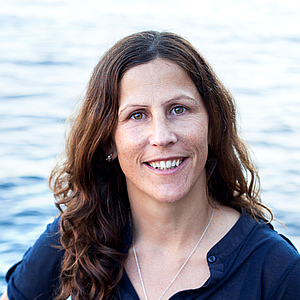
Dr Adriana Vergés is a marine ecologist whose research focuses on the ecology and evolution of species interactions and on marine conservation more broadly. Much of her recent work focuses on the ecological impacts of climate change in coastal ecosystems and the ‘tropicalisation’ of temperate communities such as algal forests or seagrass meadows. She is particularly interested in understanding the relative importance of direct physiological effects of warming vs. indirect impacts derived from shifting species interactions.
Dr Vergés holds a BSc (Hons) in Marine Science from the National University of Ireland (Galway), an MSc in Science Communication from Dublin City University (Ireland) and a PhD in Ecology at the University of Barcelona (Spain). She is currently a Senior Lecturer at UNSW Australia, where she leads a research group within the Centre for Marine Bio-Innovation.
http://www.bees.unsw.edu.au/adriana-verges
Twitter: @adriatix
Keynote Speaker
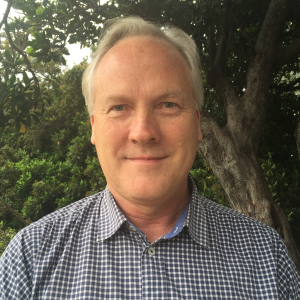
Simon Ferrier is a Senior Principal Research Scientist with CSIRO Land and Water, an Adjunct Professor at the Australian National University, and an Honorary Fellow at the United Nations Environment Programme World Conservation Monitoring Centre.
Before joining CSIRO in 2008, Simon spent more than 20 years working with state government agencies in New South Wales, during which he was an early pioneer in the development of species and community distribution modelling, and of techniques for employing such models in conservation prioritisation and planning. Throughout the 1990s and early 2000s he worked extensively with conservation practitioners, planners and stakeholders in applying these approaches to a wide range of assessment and decision-making activities across that state.
More recently Simon and his CSIRO team have been developing a new generation of macroecological approaches to biodiversity modelling and conservation assessment, and applying these techniques at regional, national and global scales to assess past-to-present change in the status of biodiversity, project impacts of future scenarios of climate and land-use change, and evaluate the potential effectiveness of alternative policy and management options in ameliorating these impacts. He is also actively involved in a number of initiatives promoting and guiding efforts in biodiversity modelling and assessment globally, including currently co-chairing the Intergovernmental Platform for Biodiversity and Ecosystem Services (IPBES) Methodological Assessment of Scenarios and Models.
